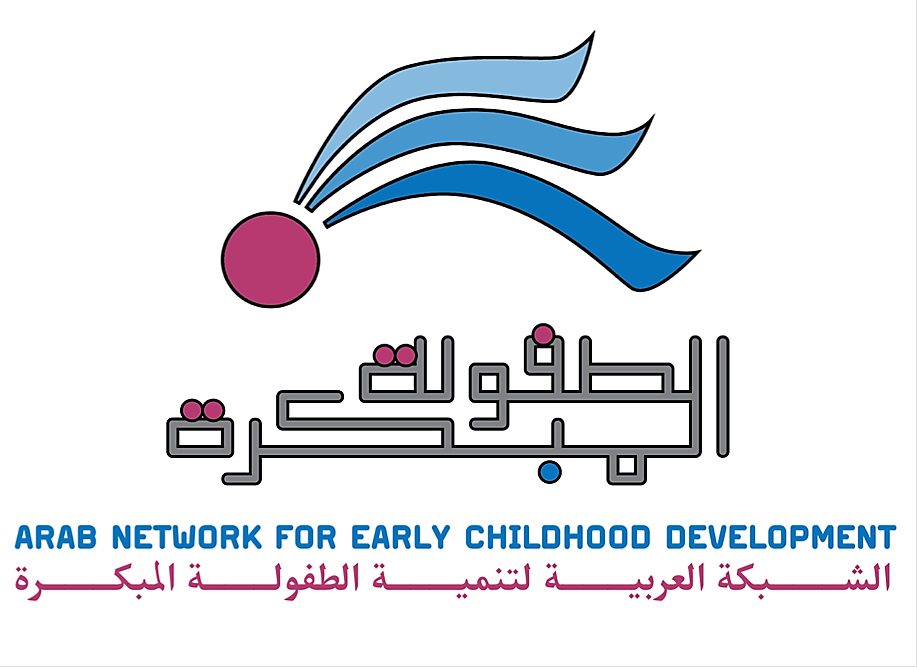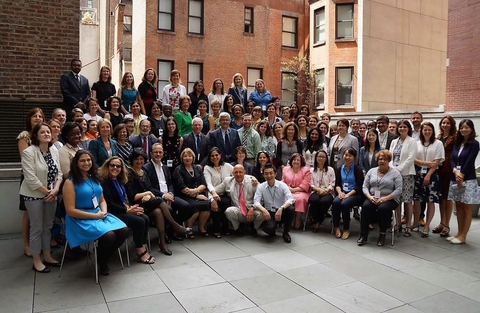We Communicate For Happy Children
 ANECD Newsletter, Issue #1
ANECD Newsletter, Issue #1 
Editorial,
ANECD Newsletter, Issue 1, January 2017
The first issue of the Arab Network for Early Childhood Development (ANECD) Newsletter is being released while children in the Arab Region have been enduring the worst conditions, especially very young children. They have been exposed to continuous dangers menacing their lives, health, education, and the development of their creative potentials, cognitive abilities, and social behaviors. Every step forward advancing their care and development is counterbalanced with conditions of wars, displacement, migration, and toxic stress that bring us back several steps.
The abyss in which our children live does not only manifest itself in their exposure to these harsh conditions. It also shows in the declining rates of enrollment in good quality pre-school programs, the scattered orientation of these programs, the workforce low competence, the fragmentation of the work of relevant entities, and lowering the budgets assigned to Early Childhood Care and Development (ECCD). These factors and many others are strongly pressuring the physical, mental, and emotional health of children and their ability to realize all their inherent potentials.
Nevertheless, facing this gloomy situation, a significant progress at the Global and Regional Levels, including the Arab Region, is emerging in a firm attempt to push forward Early Childhood Care and Development as a priority and basis for human development. An example is the global emerging movement to promote ECD as an integrated part of all the 17 Sustainable Development goals, 2015-2030.
In this context, this ANECD Newsletter will try to be a space of hope for children as you, readers, address the challenges facing EC sector, draw lessons, and connect emerging theoretical concepts to practice and implementation.
Let us try together to enrich this leeway and make it a cumulative interactive linkage between what is happening in the ECCD sector in the world and the suffering of our children in every corner of the Arab Region.
As for the English version of the newsletter, it will not be a literal translation of the Arabic version, but it will be limited to short excerpts and synopses of the Arabic, with useful references and links, and/or referrals to the original English documents when valid.
This issue is only a humble beginning – hoping that we achieve together as much as we can for the best interest of the child in the Arab Region.
Dr. Ghassan Issa
Tunisia completes the Systems Approach for Better Education Results for Early Childhood Development (SABER-ECD)
Country report is on: http://saber.worldbank.org/index.cfm?indx=2&ctrn=TN
About
The Systems Approach for Better Education Results (SABER):
The World Bank Group has focused its efforts in education in two strategic directions: reforming education systems at the country level and building a high-quality knowledge base for education reforms at the global level. The Systems Approach for Better Education Results (SABER) is helping the Bank realize this goal (Early Childhood Development in this case). At the country level, it provides education systems analyses, assessments, diagnosis, and opportunities for dialogue. At the global level, it improves the education systems knowledge base and uses this information to implement effective reforms. Using diagnostic tools and detailed policy information, SABER produces comparative data and knowledge about education system policies and institutions. It evaluates the quality of those education policies against evidence-based global standards, with the aim of helping countries systematically strengthen their education systems.
http://saber.worldbank.org/index.cfm
A presentation by Pia Britto, UNICEF Consultant, in ANECD Follow-up Meeting in Amman, April 2016 (attached)
Please see attachment.
http://www.un.org/sustainabledevelopment/sustainable-development-goals/
Sustainable Development Goal 4 Webinar Series, From Defining to Implementing
It is a briefing about the webinar series organized by UNESCO Institute for Statistics in September and October 2016 about SDG 4. The webinars presented the technical and political initiatives underway to implement the new indicator frameworks while addressing areas that are difficult to measure, such as education quality, learning, and inclusion.
See more at http://www.uis.unesco.org/Education/Pages/sdg-4-data-webinar-series.aspx
A presentation by Pia Britto, UNICEF Consultant, in ANECD Follow-up Meeting in Amman, April 2016 (attached)
Please see attachment.
http://www.un.org/sustainabledevelopment/sustainable-development-goals/
Early Childhood Workforce Initiative
It is a joint learning initiative to empower those who work with young children. More details in the leaflet attached.
http://www.earlychildhoodworkforce.org/

Technical consultation for ECDAN on 27-28/06/2016 in New York
A technical consultation was held to define the results framework, core actions, country engagement, and structure for the Early Childhood Development Action Network (ECDAN), June 27-28, 2016 in New York. ECDAN being proposed to give every child a fair start to life.
Please see the attached report
Recent ECD News, Events, and Resources
If you would like to invite your colleagues to this newsletter, follow this link:
